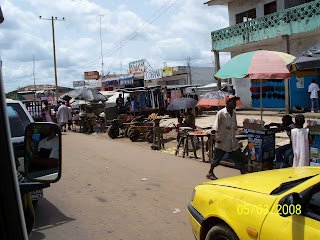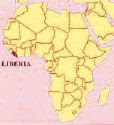It’s about 4am, patients are sleeping, just finished a movie, about to empty a foley catheter bag, eating too much junk food trying to stay awake. Yep, bring on the night shifts.
I’m not sure if this is a good time to explain what I’ve been up to. Not sure if it will come out coherently (so glad for spell-check). But I’ll give it a go anyway.
I’ve been working in A Ward, recently nick-named (in love;) the “ward down under.” It’s the ward where we have the VVF patients. The ladies who have developed a fistula after difficult child birth and now constantly leak urine. We have the job of making sure their catheters are emptied, pelvic floor exercises are done, drinking plenty of water, pain is under control, pericare done to ward off infection, etc. Hence, the “ward down under.” Nurses have a weird sense of humor.
But I guess you need to find humor wherever you can get it when you hear of these tragic stories that brought these women here.
Imagine yourself married at the age of 13 or 14 and soon after find yourself expecting a child. You’re in a remote area; no health clinics, no prenatal care, no facilities to go to when your time comes, no running water for that matter. You get to the moment of giving birth; you may have an experienced lady or midwife to help, or you might not. You expect to give birth within the same day and start to wonder what’s going on when day 3 and 4 roll by and still no baby, the pain unbearable, your body exhausted and dehydrated. Finally a baby does come but you don’t hear it’s cry, it never comes. Sadly, the tragedy doesn’t end there. A few days later you notice that your clothes are wet and smell of urine. You find you have no control and try to hide the wetness and smell from others but it’s a futile battle. Your family begins to notice and don’t want you to live in the same house because they are afraid of your “sickness.” You have to find a shelter or build one on your own to live in. You fade from the community because you are ashamed of your smell. Years go by and this loneliness becomes a way of life.
I’ve heard stories of girls wanting to take their lives because they couldn’t live with the hopelessness of their situation any longer. Desperate to have this condition end one way or another. They hear that a ship is coming with people who may be able to help them. They step onto this ship that seems to transport them to a different world with air conditioning, electricity, flushing toilets, white people… They may be terrified of this unknown world but bravely swallow their fear in hopes that this work that is to be done will allow them to be healed of this heartbreak.
Often times they come quiet and withdrawn. But when they come to a Ward that has other patients with the same condition and start to socialize again they slowly emerge from their shell.
I can’t explain to you the soul transformation that I’m witnessing in these patients. After having successful surgery they find that they are dry. Most times when I ask them how they are, they reply with “praise God.”
I can’t explain to you the soul transformation that I’m witnessing in these patients. After having successful surgery they find that they are dry. Most times when I ask them how they are, they reply with “praise God.”
I had such joy when I came into work tonight and saw a particular withdrawn patient sitting with a few other ladies singing praises to the Lord testifying to His faithfulness and love. Saying that He will never leave us in our despair. Wow. My heart was full as I joined in the singing. I feel honored to have the privilege to care for these ladies.
[The Lord will] bestow on them a crown of beauty
Instead of ashes,
The oil of gladness
Instead of mourning,
And a garment of praise
Instead of despair.
Is 61:3
Instead of ashes,
The oil of gladness
Instead of mourning,
And a garment of praise
Instead of despair.
Is 61:3
 We found a coffee shop owned by a
We found a coffee shop owned by a 

 No, we didn't see any wild
No, we didn't see any wild  Our destination was
Our destination was  The friends of friends that we were visiting is the director, and his wife, of this Christian University that is being built. This school is going to be a beautiful
The friends of friends that we were visiting is the director, and his wife, of this Christian University that is being built. This school is going to be a beautiful  From
From  It was a good thing we had a 4x4 land rover and a very capable driver. If it wasn't for
It was a good thing we had a 4x4 land rover and a very capable driver. If it wasn't for  There's an old mining camp that was probably a great success before the war, at the foot of the mountains and we found these HUGE trucks. There was at least 6-8 huge pieces of
There's an old mining camp that was probably a great success before the war, at the foot of the mountains and we found these HUGE trucks. There was at least 6-8 huge pieces of 

































